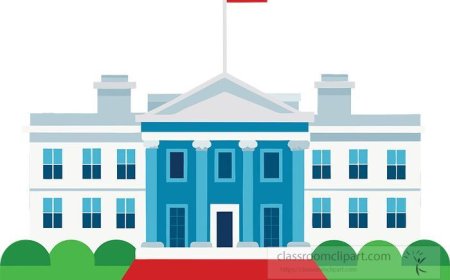The Bill of Rights Explained for Kids: Your First 10 Freedoms
Learn what the Bill of Rights is, what each of the first ten amendments means, and how these rights protect your freedom in everyday life.
🗽 The Bill of Rights: Your Freedoms Explained
📜 Introduction: What Is the Bill of Rights?
The Bill of Rights is the name for the first 10 amendments to the United States Constitution. These amendments protect some of the most important freedoms that Americans enjoy every day—like freedom of speech, religion, and the right to a fair trial.
Written in 1791, just a few years after the Constitution was ratified, the Bill of Rights was added to make sure the government could not take away people’s basic rights. Today, these ten amendments are still the foundation of American freedom and democracy.
🏛 Why Was the Bill of Rights Created?
When the Constitution was first written, many people worried that it gave too much power to the federal government. They wanted a list of specific rights that the government could not take away.
So, leaders like James Madison wrote the Bill of Rights. It was added to the Constitution in 1791 and gave Americans clear protections that would apply no matter who was in charge.
🔟 The First Ten Amendments: What They Mean
Each amendment in the Bill of Rights protects a different right or freedom. Here’s what they mean in kid-friendly language:
🗣️ 1. Freedom of Speech, Religion, and the Press
- You can say what you think
- You can believe in any religion—or none at all
- The news can report the truth
- You can gather in groups and ask the government to fix problems
🔫 2. The Right to Bear Arms
- People have the right to own weapons for protection and safety
- This right is often debated today, especially about gun laws
🛌 3. No Quartering of Soldiers
- The government can’t force you to let soldiers live in your home during peacetime
🚓 4. Freedom from Unreasonable Searches
- Police can’t search your home or take your things without a warrant (permission from a judge)
⚖️ 5. The Right to Remain Silent
- You can’t be forced to say you’re guilty
- You have the right to due process and fair treatment in court
- No one can be tried twice for the same crime (called double jeopardy)
🧑⚖️ 6. The Right to a Speedy Trial
- You have the right to a quick and public trial
- You can have a lawyer and a jury
- You can hear the charges and witnesses against you
💰 7. The Right to a Jury in Civil Cases
- In disagreements over money or property (civil cases), you can have a jury decide
🚫 8. No Cruel or Unusual Punishment
- The government can’t use punishments that are unfair, cruel, or extreme
👨👩👧 9. Rights Kept by the People
- Just because a right isn’t listed doesn’t mean you don’t have it
- People have more rights than just those in the Constitution
🏘️ 10. Powers Kept by the States
- Any powers not given to the federal government belong to the states or the people
🧒 Why the Bill of Rights Still Matters
Even though the Bill of Rights was written more than 230 years ago, it still affects how we live today. It protects your ability to:
- Speak your mind
- Believe what you want
- Stay safe from unfair treatment
- Go to school, read news, and use the internet freely
- Get a fair trial if accused of a crime
Understanding your rights helps you stand up for yourself and others. It also helps you become a more responsible and respectful citizen.
📚 Vocabulary Words
| Word | Definition |
|---|---|
| Amendment | A change or addition to the Constitution |
| Freedom of speech | The right to express your thoughts and opinions |
| Warrant | A legal paper allowing police to search or arrest someone |
| Due process | Fair treatment by the legal system |
| Double jeopardy | Being tried twice for the same crime |
| Civil case | A court case about money, property, or rights (not crime) |
| Cruel and unusual punishment | A punishment that is too harsh or unfair |
| States' rights | Powers kept by the states, not the federal government |
🧠 Key Takeaways
- The Bill of Rights is the first 10 amendments to the U.S. Constitution.
- It was added in 1791 to protect people’s basic freedoms.
- These include freedom of speech, religion, fair trials, and more.
- It limits what the government can do to its citizens.
- Understanding the Bill of Rights helps people defend their rights and be active in their community.
🌟 Interesting Facts About the Bill of Rights
- The original Bill of Rights had 12 amendments, but only 10 were ratified in 1791.
- James Madison wrote the first draft when he was just 38 years old.
- The First Amendment is one of the most quoted parts of the Constitution.
- The Bill of Rights has inspired similar documents in countries around the world.
- Some rights, like freedom of speech, have been expanded through court decisions over time.
💭 Think About It
Which of the rights in the Bill of Rights do you think is the most important? Why?
Would life in the U.S. be different without these rights?
📝 Interactive Quiz: Test Your Knowledge!
1. What is the Bill of Rights?
A) A rulebook for Congress
B) The first 10 amendments to the Constitution
C) A list of taxes
D) The President's duties
2. Which amendment gives you the right to speak freely?
A) The Second
B) The Fourth
C) The First
D) The Tenth
3. What does “freedom of religion” mean?
A) The government picks your religion
B) You can only believe in one religion
C) You can choose any religion or none at all
D) You must go to church every Sunday
4. What is a warrant?
A) A type of coin
B) A legal paper that lets police search your home
C) A voting ballot
D) A speech right
5. What does the Eighth Amendment protect against?
A) School rules
B) Cruel and unusual punishment
C) Public speaking
D) Reading the news




















































